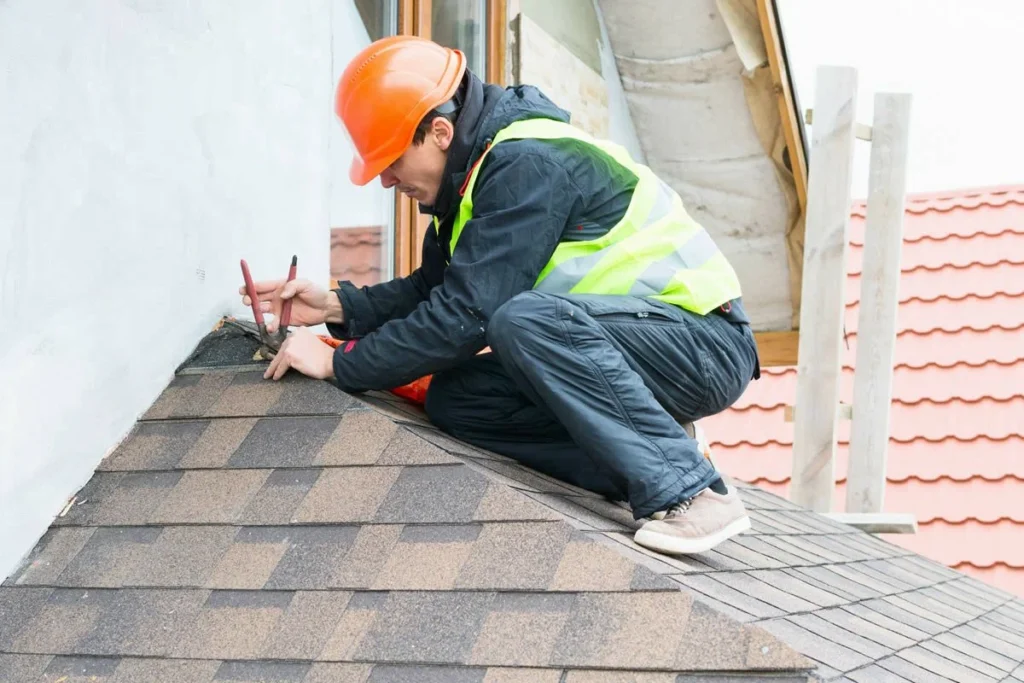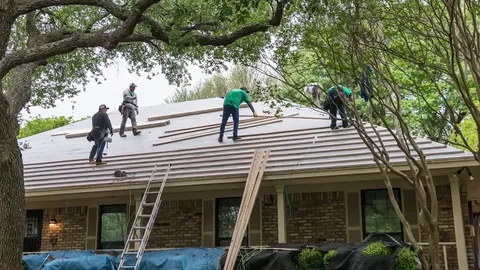Introduction
Your roof is the superhero of your house, which protects you against the weather. However, we sometimes forget about little leaks or little damage and believe it is not the problem or that it can be controlled later. Nevertheless, putting off repairs needed on the roof may have a domino effect of expensive problems that could be incurred, and the results may be the piling up of repair bills or health risks, and even structural instability of your home. This blog will discuss the factors behind how procrastinating in roof maintenance can cause massive losses and the reasons why you should start moving on your roof to guarantee the safety, comfort, and value of your home.
Leaks and Losses: The True Cost of Delaying Roof Repairs
Delaying the important roof first may not seem that harmful, because you are unable to see any visible damage. You are unaware of the damage that will come after this ignorance. It is very crucial to take immediate action because timely repairs will save your home and protect you from costly damage.
The following are the reasons that will show you why you should not delay roof repairs:
- Increased Repair Costs
Even minor issues with the roof are likely to result in bigger and more costly issues. What might have started as a small leak or shingle to the roof might lead to significant structural repair or replacement, which will cost thousands of dollars more. Prevention is action prior to the escalation of the damage.
- Water Damage and Mold Growth
Unattended repairs on the roof allow water to enter your house, leaving stains, peeling paint, and insulation. Constant dampness encourages molds and mildew, which are detrimental to the health of your family. Remediation of molds is costly. Fixing a roof leak will help avoid resultant leaks and keep your house dry, safe, and healthy.
- Higher Energy Bills
A broken roof will weaken the insulation of your home, letting in the outdoor warmth. It will make your HVAC work harder, which will lead to high energy bills. Repairs on roofs are efficient to ensure the restoration of insulation, greater comfort, and a reduction in the bills you spend on heating and cooling systems every month.
- Decreased Home Value
The bad roof makes your home less appealing and less valuable in the market, thus harder to sell. The potential buyers might pressure with the demand for discounts or repairs before the close. Proper fixes save your money, get more buyers, and a more favorable, better sale.
- Risk of Structural Damage
Water that gets into the roof through a broken roof may create structural damage to the beams and joists. In the long run, this compromises the integrity of your home, and it exposes your family to danger. Quick repair will avoid additional damage and maintain the stability and safety of the structure of your house.
- Insurance complications
Not treating your roof issues on time will lead to insurance problems, coverage denials, and higher premiums. There are some clauses in your insurance claim that say “neglected roof repairs will affect your claim procedure”. That is why regular repairs are very important for your roof.
Top Preventive Roof Maintenance Tips
Maintenance of a rooftop in a preventive way includes its routine inspections and on-time repair of minor issues to keep your roof strong and safe and prevent costly repairs. The following are preventative maintenance measures that help to save on huge costs:
- Inspect your roof twice a year.
- Clean gutters and downspouts.
- Trim overhanging tree branches.
- Remove moss and algae promptly.
- Check and repair flashing and seals.
- Ensure proper attic ventilation.
- Address small repairs immediately.
Conclusion
Postponing roof repairs may feel small today, but it can develop into expensive, stressful problems quickly enough. If a roof problem exists, and it is a tiny one, it is time to put an investment in the safety, comfort, and value of your home. Addressing roof issues sooner rather than later can prevent large expenses, protect health issues for your family, and assist with maximizing the longevity of your property. Don’t wait for one little leak to develop into one big problem, or, for example, a headache later. Procrastination may ultimately require even more time, money, or sleep lost.
Read More:
FAQs
What are common signs that my roof needs repair?
Signs include missing or cracked shingles, leaks, water stains on ceilings, granules in the gutters, and sagging roof areas.
How long does a typical roof repair take?
Most minor repairs can be completed in a day, but extensive damage may take several days.
Will insurance cover my roof repairs?
This depends on the policy and the cause of damage. Insurance often covers repairs caused by sudden events but not neglect or wear and tear.



